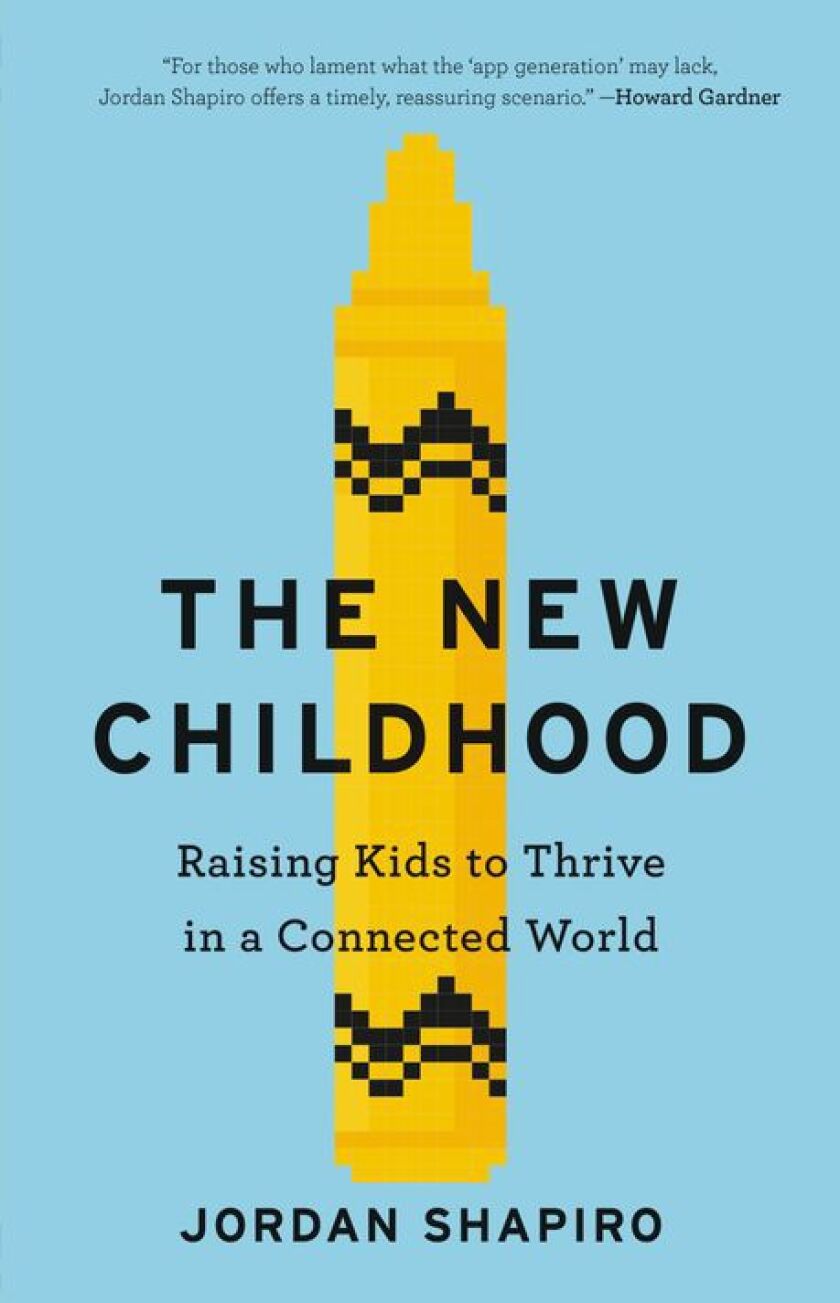Pac-Man needs to gobble up everything you know about what video games can do to children’s minds.
In “The New Childhood: Raising Kids to Thrive in a Connected World” (Little, Brown Spark, 320 pp., ★★★), author Jordan Shapiro wants to convince us that video games, social media and educational technology are beneficial for kids.
While much of his book reads like cocktail-party chatter, Shapiro knows what he’s talking about.
He’s a senior fellow for the Joan Ganz Cooney Center at Sesame Workshop and a professor at Temple University, so he can back up his underlying argument that the older generation always has a hard time believing what’s new is good. (He’s also a father of two boys, who are frequently cited in the book.) Sandboxes were once thought to be innovative, for example.
The screenification of the nation’s children is happening, so stop fighting it.
Shapiro’s arguments are compelling and Luddite-proof, but what “The New Childhood” is missing — due to a lack of research in the field, not scholarship on the author’s part — is an exploration into what the long-term effects of all this screen time are.
“The New Childhood” also fails to address head-on parental concerns that too much screen time may lead to social isolation, obesity, mental health problems and poor grades among kids. The biggest concern — that technology is addictive — seems to worry Shapiro not at all.
Three key takeaways from “The New Childhood”:
1. Game time as a family.
Erase that image of the lonely child sitting in front of a screen. Use games with your kids. The ones with narratives serve as a form of stories, and emotions expended during the course of a game quickly can become a catharsis.
You played Monopoly with your parents? This is board games 2.0, so bond with sons, daughters, nieces and nephews during family screen times, as they learn cooperation, planning, multi-tasking and executive functioning.
2. Toys are toys are toys.
Embrace the toys of today. This isn’t about wooden blocks, but a colorful, noisy electronic world of fantasy. Play is how kids get used to the larger world and get ready for adult life. Things they garner from 21st century games — from etiquette to out-of-the-box thinking – will serve them in the future.
3. Oversee social media use.
Let kids get on social media, where they can share thoughts and images. But parents need to serve as gatekeepers. Prepare kids to navigate that world on their own, by teaching them digital-world manners, applauding schools that take advantage of digital tools and structure classrooms accordingly, and explaining the long tail anything kids post online will have.
Zlati Meyer, USA Today
Read more at usatoday.com






